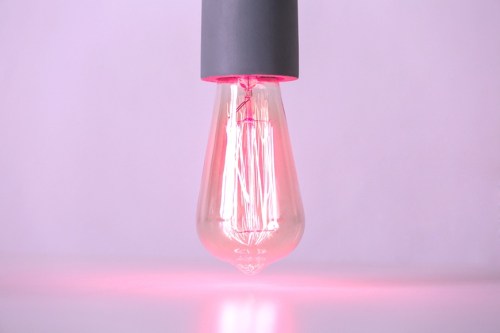This kind of ultraviolet light might kill the flu virus without harming your health
There's one kind of ultraviolet light that might kill the flu virus without harming your health. Here's what you should know about overhead far-UVC light.

Since childhood you’ve been told to avoid ultraviolet (UV) radiation, which is responsible for nearly all skin cancers. But, new research might give you a reason to soak up a specific kind of the rays that might be able to kill the flu virus.
According to a new study published in Scientific Reports, continuous and low doses of far ultraviolet C (far-UVC) can stop the flu from transmitting. Because of that, researchers think using overhead far-UVC light in public spaces like hospitals, airports, schools, doctor’s offices, and even on airplanes could limit the spread of seasonal influenza outbreaks.
“Far-UVC light has a very limited range and cannot penetrate through the outer dead-cell layer of human skin or the tear layer in the eye, so it’s not a human health hazard. Because viruses and bacteria are much smaller than human cells, far-UVC light can reach their DNA and kill them.” —Lead study author David J. Brenner, PhD
“Far-UVC light has a very limited range and cannot penetrate through the outer dead-cell layer of human skin or the tear layer in the eye, so it’s not a human health hazard,” says lead study author David J. Brenner, PhD, in a press release. “Because viruses and bacteria are much smaller than human cells, far-UVC light can reach their DNA and kill them.”
After testing far-UVC light’s effectiveness in killing an aerosolized H1N1 virus—which represents how the flu generally spreads from person to person through coughing, sneezing, and talking—in a setting similar to a public place, researchers found the light totally inactivated the bug.
“If our results are confirmed in other settings, it follows that the use of overhead low-level far-UVC light in public locations would be a safe and efficient method for limiting the transmission and spread of airborne-mediated microbial diseases, such as influenza and tuberculosis,” said Dr. Brenner.
The lamps would cost less than $1,000 each, the press release notes, so it might be worth the investment in public health to try the super light’s superpowers. Beyond helping to prevent the spread of viruses among people in close quarters, Dr. Brenner said unlike flu vaccines, far-UVC lights could protect against new virus strains—not just the stalwarts your annual shot covers.
Here’s how to keep your pup safe from the dog-flu outbreak. Or, find out how to survive the “keto flu” like a champ.
Sign Up for Our Daily Newsletter
Get all the latest in wellness, trends, food, fitness, beauty, and more delivered right to your inbox.
Got it, you've been added to our email list.










